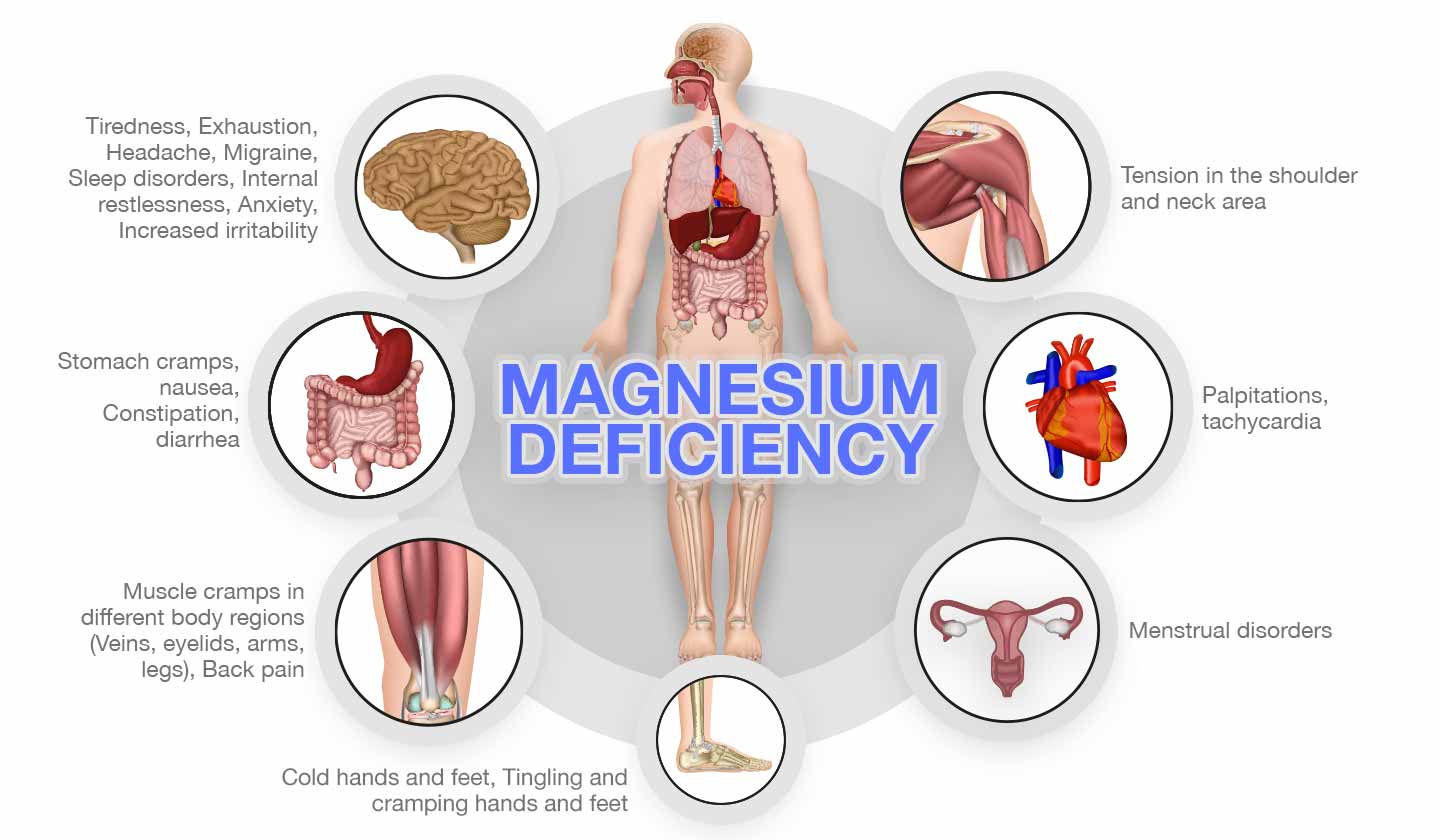Supplements
Magnesium power

Like all minerals, magnesium is not produced by the body and must be provided through supplements or food. Find out which foods are rich in this mineral and its importance for the body.
Magnesium plays important roles, particularly in bone health and in the regulation of insulin and blood glucose, and is essential in the prevention of diabetes. But it is essential in more areas of the body. Magnesium acts as a cofactor in more than 300 metabolic reactions, playing a fundamental role in bone health, through the correct absorption and metabolisation of calcium, and also plays an important role in glucose metabolism, in insulin and glucose regulation and in the synthesis of adenosine triphosphate (ATP), proteins and amino acids. It also acts on the stability of the neuromuscular junction as well as on the stability of muscle and cardiac activation, on the maintenance of vasomotor tone and as a physiological regulator of hormonal and immunological functions.
Magnesium concentration in the body
A healthy person has about 21g to 28g of magnesium, distributed mainly in bones (65%), muscles (25%) and soft tissues and body fluids (10%).
The mineral is part of the red blood cell plasma and is also present in the cells.
How it works in the body
There are several functions and benefits of magnesium in the body:
- Regulation of melatonin production, benefiting the quality of sleep;
- Formation of collagen, essential for bones, tendons and cartilage;
- ATP synthesis - molecule used by the body as an energy source, important when doing physical activity
- Regulation of calcium levels in the body, together with vitamin D, copper and zinc, preventing the appearance of osteoporosis
- Increased insulin excretion - regulating sugar metabolism. The lower the magnesium intake in the diet, the higher the risk of developing type 2 diabetes;
- Neurological problems such as anxiety, reaction to stress, panic attacks or excessive agitation, are avoided or relieved by those who obtain the correct daily magnesium requirements. Magnesium is also known to relieve the intensity of headaches and migraines, as in reducing the frequency of epileptic seizures;
- It reduces the risk of some cardiovascular problems - being an essential mineral for the proper functioning of this system, it maintains the regularity of the heartbeat and is also used to control arrhythmias and blood pressure.

Which foods are rich in magnesium
Like all minerals, magnesium is not produced by the body and must be provided through food or supplements. The main sources of magnesium are:
- Whole grain cereals (whole wheat flour);
- Green leafy vegetables: spinach, kale, turnip, celery;
- Cucumber;
- Green beans;
- Nuts and seeds: walnuts, almonds, hazelnuts, cashews, peanuts, pumpkin seeds and sunflower seeds;
- Dark chocolate
- Dairy products;
- Fish: mainly sole, mackerel and salmon;
- Tubers: potato and sweet potato;
- Fruit: banana, apricot, avocado, peach, plum, apple, citrus.
Magnesium needs in our organism
The recommended daily magnesium intake is obtained through a healthy, balanced diet. It can vary according to age and gender. In the first years of life the daily dose is 30mg per day, with a noticeable increase at the beginning of the adolescence phase.
The recommended daily magnesium intake values are listed in the table below:

When is it necessary to take supplements?
If you follow a healthy, balanced diet you will get the recommended daily intake of magnesium without needing to take supplements. Natural sources of the mineral are varied and abundant, so its presence is common in almost everyone's diet. But in recent years, diets have become less rich in magnesium because of increased consumption of processed or intensively farmed foods.
These foods contain less magnesium compared to healthier foods, which compromises their adequate intake and exposes individuals to higher levels of risk and the development of chronic diseases. Several studies have shown that a diet low in magnesium contributes to an increased risk of developing insulin resistance, type 2 diabetes mellitus and cardiovascular diseases.
It can also cause neuromuscular and bone metabolism disorders, cardiac arrhythmias, hypertension, atherogenesis (damage to artery walls) and eclampsia (can affect pregnant women in the last phase of pregnancy).

Be aware of the symptoms of magnesium deficiency
Magnesium insufficiency is rare, but if you experience the following symptoms you may need to take supplements:
- Muscle problems, such as contractures, spasms (cramps), tremors and eyelid spasms;
- Tachycardia, abnormal heart rhythms and coronary spasms;
- Blood pressure disorders (hypertension or hypotension);
- Headache;
- Dizziness;
- Spasms in the digestive tract (oesophagus, stomach and intestines);
- Fatigue, weakness, adynamia
- Loss of appetite;
- Hyperacidity and constipation
- Nausea and vomiting;
- Alterations of the nervous system: insomnia, anxiety, hyperactivity, agitation;
- Osteoporosis;
- Calcification of membranes, tendons and cartilage.
Supplements can be very beneficial for those over 65, but also for people taking medication that impairs the absorption of minerals, including magnesium, such as como:
- Diuretics can increase the loss of magnesium in the urine and contribute, over time, to a reduction in the reserves of this mineral, as well as those of potassium, sodium and calcium;
Some antibiotics, mainly tetracycline and its derivatives, as magnesium binding to this drug in the intestine reduces its absorption and also the effectiveness of the antibiotic.

Magnesium Supplements
Magnesium supplements is available in multivitamin-mineral supplements and specific dietary supplements. It is also found in some laxatives and medicines to treat heartburn and indigestion.
Magnesium supplements are available in different forms, including magnesium oxide, magnesium citrate or magnesium chloride. Generally, the labels of magnesium supplements indicate the amount of elemental magnesium, not the amount of the respective salt.
The absorption of magnesium varies according to the type of salt. The forms of magnesium that dissolve more easily in liquids are more completely absorbed in the intestine than less soluble forms.
Sources
iSaúde
Farmácia Distribuição Magazine
Também lhe poderá interessar
Supplements
Attention! Beware of supplementation in sport
Supplements






